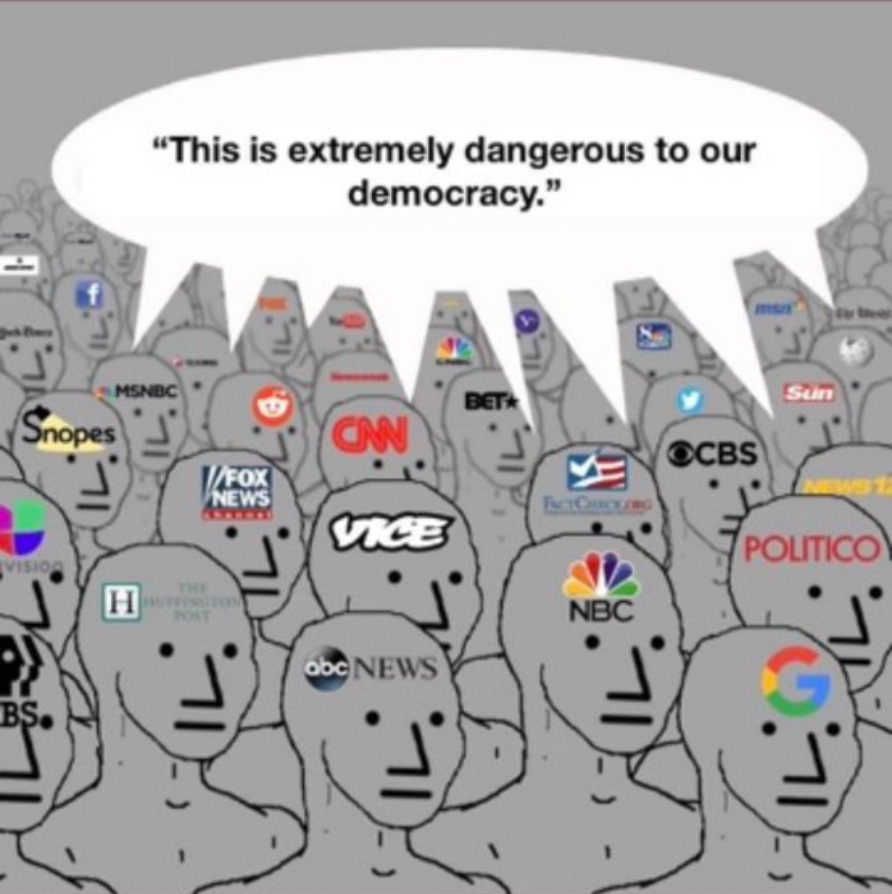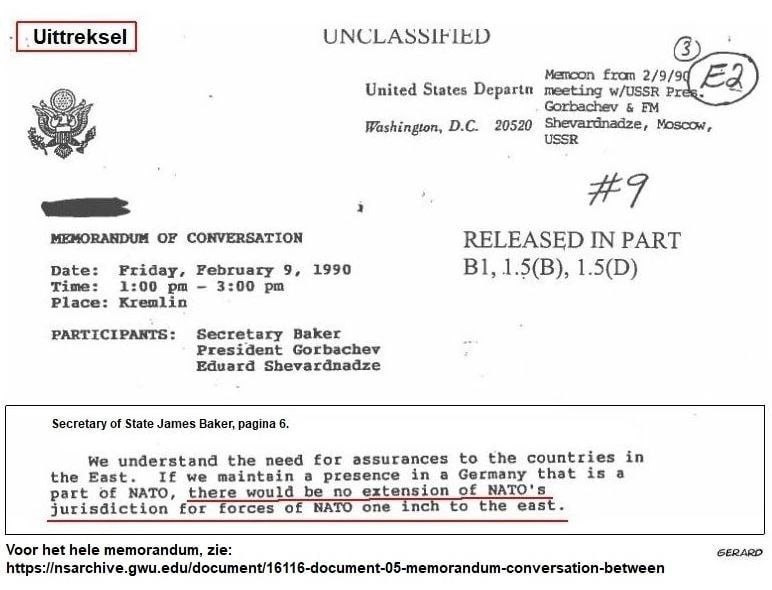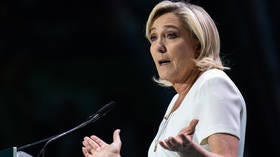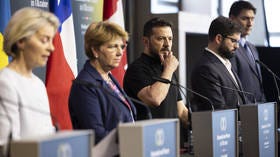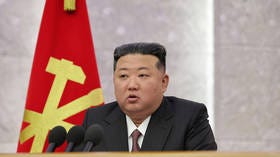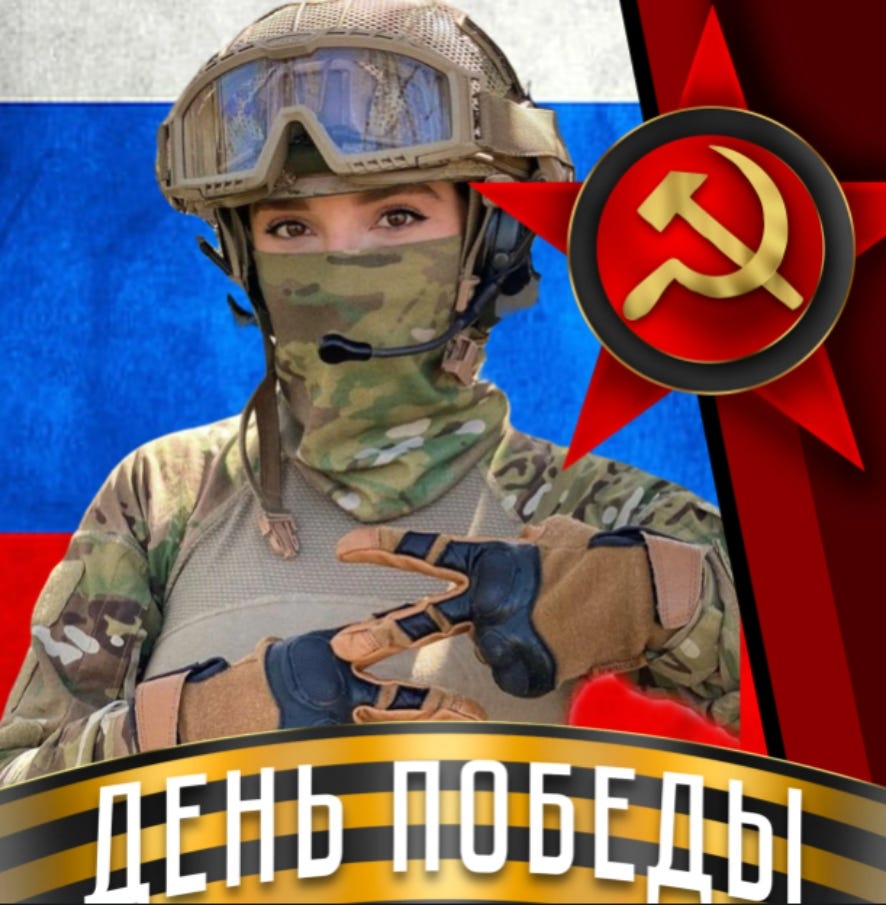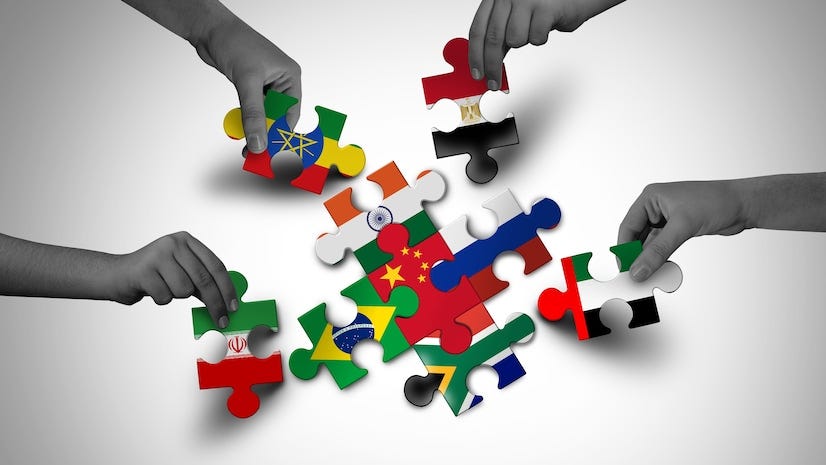RUNNING UPDATES ON THE CONFLICT IN UKRAINE - 06.07.2024
Including geopolitical issues affecting the balance of power in the ongoing end game war to establish our common future, a closely monitored prison planet or tolerance for diverse modes of governance.
THE ROAD TO THE ULTIMATE CONCLUSION OF WORLD WAR III RUNS THROUGH HERE.
*** ALL GOING RUSSIA’S WAY AS WEST’S GLOBALIST LEADERS FALL ***
“Ukraine. What is the truth...?
Why won’t western media tell both sides…?”
VIRTUALLY UNREPORTED ATROCITY IN LUGANSK, 2nd JUNE 2014
A lot has been said about atrocities in the western media claimed to have been perpetrated by the Russians, for example at Bucha and Mariupol among others. These assertions are conveyed on the say so of the Ukrainian authorities. How willing though are western news broadcasters to convey atrocities attributed to the Ukrainians? The following will I think provide the answer.
If anyone wonders if they are receiving accurate coverage of the conflict in Ukraine I would suggest watching the video below of an event which occurred on the 2nd of June 2014 and ask themselves if they recall hearing about it on any mainstream media news channel at the time.
The video is harrowing to watch. The bodies (five women and three men) are real. Yet across western media there was only one single news report that occurred a day later. This was from CNN and occurred only because a CNN team happened to be nearby at the time of the atrocity and so the network could hardly ignore it as all others so obviously did.
The video below shows the unvarnished truth that was not considered newsworthy in western mainstream news.
THE SINGLE WESTERN MSM REPORT ON THE LUGANSK ATROCITY, 3rd JUNE 2014
The video at the CNN link below is the crime scene sanitised by CNN, though played straight with honest reporting on the scene not playing things to Kiev’s tune.
(There was a time early in the war in the Donbass when CNN were not afraid to contradict the Ukrainian regime in Kiev.) Watch, because it's the first and last time you will see this.
5 women and 3 men died, all civilians.
Air attack on pro-Russian separatists in Luhansk kills 8, stuns residents.
COLLECTIVE WEST-UKRAINE <-> RUSSIA
SHAMELESS WESTERN MEDIA IGNORED THIS:
Airstrike in Lugansk - 10 Year Anniversary.
The Heat: Bloody Massacre In Hlyboke. Dissection Of The Kupiansk Direction. Military Summary 2024.7.6
ALEXANDER MERCOURIS of THE DURAN: Rus Unstoppabe Offensive; Rus General: 2024 Victory Year; Orban Mediation; Starmer Backs Zelensky.
ALEX CHRISTOFOROU of THE DURAN: Stephanopoulos to rescue Biden. Orban uses diplomacy, EU shocked. Le Pen has two Ukraine red lines.
ALEX CHRISTOFOROU & ALEXANDER MEROURIS of THE DURAN: EU, NATO angry as Orban visits Moscow to talk peace.
RAY MCGOVERN (EX-CIA INTEL ANALYST): Putin Drops BOMBSHELL on NATO - Netanyahu BEGS for US Intervention Against Hezbollah.
COLONEL JACQUES BAUD: Russia OBLITERATES Ukraine's Forces While NATO Is CLUELESS.
ANDREI MARTYANOV: Ukraine's Total Collapse Imminent?! Israel Faces Crushing Defeat by Hezbollah.
Orban’s surprise visit to Moscow sparks fury in Brussels: Key takeaways from Hungarian PM’s ‘peace mission’.
The Hungarian prime minister unexpectedly traveled to Russia, just days after he visited Ukraine in the same unannounced manner.
Hungarian Prime Minister Viktor Orban shakes hands with Russian President Vladimir Putin during a meeting in Moscow on July 5, 2024 © Sputnik / Valery Sharifulin
Hungarian Prime Minister Viktor Orban unexpectedly visited Russia on Friday and met with President Vladimir Putin to discuss ways to resolve the Ukraine conflict. The surprise trip caused major outrage among Orban’s fellow EU leaders, as it came only days after the Hungarian premier made a similar unannounced trip to Ukraine.
Hungary holds the rotating EU presidency for the remainder of this year. Orban, however, has claimed that he doesn’t require any sort of mandate from Brussels in order to promote peace, noting that his discussions cannot be considered official negotiations.
Peace mission
Orban said his trip had been the first step to restoring dialogue. A critic of Western military aid to Ukraine, the Hungarian premier said he recognized he had no EU mandate for the trips but that peace could not be achieved “from a comfortable armchair in Brussels.”
“We cannot sit back and wait for the war to miraculously end,” he wrote on X (formerly Twitter) before meeting Putin.
Orban visited Kiev earlier in the week, where he urged Vladimir Zelensky to seek peace with Russia, arguing that a ceasefire could serve as a first step in the right direction. The Ukrainian leader didn’t take his proposal well, Orban said later. Kiev insists that only a military victory will result in a “just peace.”
“Shortest way out” of Ukraine conflict
The Hungarian premier said he wanted to hear directly from Putin how Russia perceives various peace initiatives, calling it an important step, even though the frank discussion confirmed that there was a major rift between the conflicting sides.
Putin and Orban discussed the “shortest way out” of the conflict, which the latter later revealed to journalists. Moscow’s and Kiev’s positions remain very “far apart,” the Hungarian admitted.
READ MORE: Putin calls for ‘complete end’ to Ukraine conflict
“A lot of steps have to be taken to get closer to a resolution of the war. Still, we’ve already taken the most important step – establishing the contact, and I will continue to work on this in the future,” Orban stated.
Moscow’s vision
Putin has told Orban that he presented his vision of how the conflict can be resolved, in a keynote speech at the Foreign Ministry last month, and said he is prepared to discuss its nuances.
The proposal he was referring to was to suspend hostilities immediately after Kiev renounces its bid to join NATO and orders its troops to pull back from all territories claimed by Moscow. Then a comprehensive discussion of a new security architecture in Europe could be held, Putin suggested. The Ukrainian government has rejected the offer.
The Russian president has reiterated Moscow’s readiness to resolve hostilities through negotiations. The Ukrainian leadership, however, appears to be still incapable of abandoning its idea of waging a war “until the end,” Putin noted.
Moscow is seeking to reach lasting, sustainable peace rather than opting for a temporary ceasefire or a “frozen conflict” of any sort, the Russian president warned.
There should not be a “ceasefire or some kind of pause that the Kiev regime could use to recover losses, regroup, and rearm. Russia is in favor of a complete and final end to the conflict,” Putin stressed.
Fury in Brussels
The trip to Moscow drew strong rebukes from EU leaders and officials, despite Orban insisting earlier in the day that he was not representing the union.
European Commission President Ursula von der Leyen has accused Hungary’s prime minister of “appeasement” with regards to Putin. “Only unity and determination will pave the path to a comprehensive, just, and lasting peace in Ukraine,” she claimed.
German Chancellor Olaf Scholz has said that Orban’s visit to Russia had nothing to do with the EU, and that the bloc’s position on the conflict remains unchanged.
Polish Prime Minister Donald Tusk, a vocal supporter of Kiev, lashed out at Orban after rumors of his impending visit started circulating in the media on Thursday. Tusk claimed he could not believe such a visit could take place.
READ MORE: Kiev outraged over Orban’s visit to Moscow
Estonian Prime Minister Kaja Kallas, who is slated to become the EU’s next foreign policy and security chief, has joined the chorus of Western officials reprimanding Orban. The Hungarian prime minister intends to “sow confusion,” she has claimed.
Ukraine conflict’s broader impact
The enduring conflict between Russia and Ukraine is affecting the broader European region, according to the Hungarian PM, who said the continent has enjoyed the most rapid and sustainable development only during peacetime.
In previous public remarks, Orban expressed concern that Western determination to escalate the Ukraine conflict may result in a direct clash with Russia, which could have catastrophic consequences for everyone involved.
Budapest has argued that the economic restrictions spawned by the conflict have hurt EU nations more than Russia and have failed to compel Moscow to capitulate.
Hungary Initiates REAL Peace Talks With Russia. Orban Visits Putin. Globalists Furious.
Putin And Hungary PM Orban Address Ukraine War In Joint Press Conference | NATO | Russia.
As Orban Meets Putin For Ukraine ‘Peace’ Mission, EU Leaders Blast NATO Nation PM: ‘No Mandate To…’
NATO Chief’s Stunning Reaction As Orban, Putin Discuss Ukraine War: ‘There Will Be Opportunity To…’
THROUGH THE EYES OF… ANIA: "POLAND- UKRAINE, A LONG-TERM DEFENSE COOPERATION." ORBAN's VISIT IN MOSCOW.
EMIL COSMAN: Hungary smacks Germany. Baerbock cancelled. Orban meets Putin. Why West doesn't want peace in Ukr?
Consent for War: Think Tanks and the Russia/Ukraine Conflict.
LENA PETROVA: 🔴 THE WEST EXPOSED: Europe Wants UKRAINE'S Lithium to Secure Its Renewable Energy Transition.
DANNY HAIPHONG - PEPE ESCOBAR: Putin’s BOMBSHELL just Changed Everything and NATO is Done.
BORZZIKMAN: ON CAM: The Last Minutes of US Mercenaries' Lives┃Russia Captured 'SOTNITSKIY KAZACHOK'.
Le Pen pledges to block troop deployment to Ukraine.
The right-wing party National Rally will also prohibit Kiev from using French weaponry on Russian soil.
© Getty Images / LightRocket / Marcos del Mazo
France’s right-wing National Rally (RN) party will block potential troop deployments to Ukraine and bar Kiev from using French-supplied weaponry to strike Russian soil should it emerge victorious in the parliamentary elections and secure the office of prime minister of the country, Marine Le Pen, the former long-time leader of the party, has said.
She made the remarks on Thursday in an interview with CNN ahead of the second round of voting scheduled for Sunday. The final say on the potential deployment of French troops to Ukraine belongs to the prime minister, and the stance of President Emmanuel Macron does not actually matter in such cases, she suggested. Over the past few months, Macron has repeatedly mulled the idea, using increasingly belligerent rhetoric on the Ukrainian conflict.
“If Emmanuel Macron wants to send troops to Ukraine and the prime minister is against it, then there are no troops sent to Ukraine. The prime minister has the final say,” Le Pen stated.
Her party in power would also bar Kiev from using French-supplied weapons to conduct strikes on Russian soil, Le Pen said, arguing that the permission to do so makes Paris “co-belligerent” in the conflict.
READ MORE: NATO fears French withdrawal – media
National Rally’s stance sharply differs from the take of most Western leaders, who had allowed their weaponry to be used for such strikes, repeatedly claiming that it had not made their countries a party to the hostilities. Moscow has repeatedly warned the collective West against supplying increasingly sophisticated weapons to Kiev, stating that Ukraine’s backers have for long been involved in the hostilities, which it sees as a “proxy war” on Russia.
Le Pen’s rhetoric appeared to be rather reserved, given the fears that her party could take drastic measures, including ceasing all support for Ukraine or even taking France out of the US-led NATO bloc altogether. Such concerns have been mounting in the EU lately, Euractiv has reported, citing several anonymous diplomats.
The RN party came out on top in the first round of France’s snap election, securing 33% of the vote. The election was called by Macron after his party suffered a crushing defeat to the RN in the European Parliament elections last month.
Macron’s centrist Ensemble bloc also fared poorly in the first round of domestic polls, coming only third, with 20%, while the second place was taken by a left-wing coalition hastily assembled ahead of the polls. In the second round, the RN is projected to win up to 280 seats of the 577-seat National Assembly.
Le Pen pledges to block troop deployment to Ukraine.
ISRAEL-WEST <-> PALESTINE-IRAN-SYRIA-IRAQ-LEBANON-YEMEN-DPRK
KATIE HALPER: Media Smears Palestinian Grandmother As ‘Terrorist’.
RICHARD MEDHURST: Britain's New Zionist PM Protected MI6 Torturers, P@edophile Jimmy Saville & Hunted Assange.
COLLECTIVE WEST <-> GLOBAL MAJORITY
Moscow Pact: Will Russia unite the disunited world?
The global majority is increasingly showing its dissatisfaction with West’s ‘rules-based order’, but will the Kremlin take advantage of this?
By Farhad Ibragimov – expert, lecturer at the Faculty of Economics of RUDN University, visiting lecturer at the Institute of Social Sciences of the Russian Presidential Academy of National Economy and Public Administration.
Russian President Vladimir Putin arrives at the Nursultan Nazarbayev International Airport ahead of a meeting of the Council of Heads of State of the Shanghai Cooperation Organisation (SCO) in Astana, Kazakhstan.
The so-called Ukraine “peace summit” held in Switzerland last month, the June meeting in Russia of BRICS foreign ministers, Vladimir Putin’s Asian tour, and even this week’s visit by Hungarian PM Viktor Orban to Moscow – all these events are proof that the US and its allies have failed to isolate Russia from the rest of the world.
It is becoming clear that the Global South, which unites over 130 countries with a total population of about six billion people, does not intend to sever ties with Moscow. On the contrary, despite being pressured and blackmailed by the West, the countries of the Global South are striving to develop and strengthen relations with Russia. These states are irritated by the West’s hegemony and want to form a new world order based on justice and sovereignty.
Poles of the New World Order
The Ukraine crisis has contributed to the strengthening of the Global South’s role. The West hoped to enlist the unconditional support of the world majority, since it has the power to implement sanctions mechanisms through Western-controlled international financial institutions. But Washington’s traditional methods have started to lose their effectiveness. Iran and North Korea, which have lived under severe Western sanctions for decades, have become an example for other countries that want to pursue a foreign policy based on national interests.
And despite the fact that the West has imposed the greatest number of sanctions against Russia, the latter has become a ‘bulwark’ for the entire Global South and many countries have united around it. A good example is the growing role of alternative international associations – such as the SCO and BRICS – in which Russia holds leading roles. Many countries have already lined up to join these organizations, where they see many new opportunities for themselves.
Read more: Fyodor Lukyanov: Is Eurasia about to get its own NATO?
In early June, Turkish Foreign Minister Hakan Fidan said that Ankara intends to join BRICS. For the West, this came like a bolt from the blue. Europe was clearly unhappy about it, since Türkiye is not just any country but an important member of NATO which increasingly strives to pursue its own policy without consulting either Washington or Brussels.
This year, the BRICS summit will be held in Russia. According to various sources, the leaders of dozens of countries – including China, India, South Africa, Brazil, Iran, the United Arab Emirates, Ethiopia, and Egypt – plan to attend the event. The summit may also be attended by representatives of Saudi Arabia, the president of Türkiye, and delegates from several countries that will announce their intention to join BRICS. All these countries continue to develop trade and economic ties with Moscow without fearing US sanctions, which leads to a natural question – what kind of “isolation” is the West talking about in regard to Russia?
Ukraine is not on the agenda
In the context of an emerging multipolar world order, ignoring the opinion of the Global South would lead to a further increase in tension and to division of the international community. The position of the Global South on the Ukraine issue demonstrates a desire for greater independence in international affairs, as well as criticism of the West’s unilateral actions. The Ukraine summit in Burgenstock, Switzerland, showed that the countries that made it to the event are looking for ways to resolve the conflict, but none of them want a full-scale conflict with Russia.
Simply put, the meeting demonstrated that Ukraine’s Vladimir Zelensky has completely lost the support of the Global South and, seeing the uselessness of the proxy war with Russia, the West is gradually getting tired of it. It is noteworthy that the Turkish Foreign Minister said that the result of the meeting would have been different if Russia had participated in it. Representatives of 92 countries arrived at the summit. 78 countries initially signed the communique, which, as the organizers of the event noted, did not obligate them to anything. Among those who abstained were Armenia, Bahrain, Brazil, the Vatican, India, Indonesia, Colombia, Mexico, Libya, the United Arab Emirates, Saudi Arabia, Slovakia, Thailand, and South Africa. Later, Iraq, Jordan, and Rwanda withdrew their signatures and as a result, 75 countries appeared on the list of signatories.
Even the Ukrainian parliament recognized that the situation is at a stalemate and is clearly not in favor of Kiev and its Western curators. Kiev said that the previously announced second conference would not take place, since the first one didn’t accomplish the necessary goals. This happened because the Global South, as the Global Majority, demonstrated a lack of interest in the Ukraine issue.
Read more: Zelensky’s ‘peace conference’ will go down in history, but not in the way you might think
The fact that even leading Western players such as Australia and New Zealand were represented at the summit by the Minister for the National Disability Insurance Scheme and the Minister of Police and Correctional Services, respectively, underlines how ‘serious’ the West is about participating in summits where the same things are repeated over and over again. US President Joe Biden did not attend the event either, instead sending Vice President Kamala Harris, whose presence was rather unconvincing and superficial. Washington attempted to save face because the leaders of India, South Africa, and Brazil did not participate in the summit and China completely ignored the event, stating its position from the very beginning.
All these BRICS countries are strongholds of the Global South, and have chosen to strengthen ties with Russia and BRICS. In other words, the original goal of Kiev and its Western sponsors – to demonstrate the world community’s complete support for Ukraine and the total isolation of Russia – has failed.
There is no unity in the West
Even the North Atlantic Alliance could not show 100% support for Kiev, not to mention representatives of the Global South. We may also recall the European Parliament elections held in early June, which resulted in a fiasco for the ruling elites in the leading EU countries – France, Germany, and Belgium. The Alternative for Germany political party, which only a few years ago was considered a marginal party both in Germany and Europe, came in second in Germany’s EU parliamentary elections, and has pushed the ruling party into third place. The same thing is happening in France and Italy.
The societies of these countries are tired of the insane behavior of their governments which, instead of encouraging dialogue and neighborly relations with Russia, embark on a path of open and tough confrontation with Moscow, deliberately ruin relations with Beijing, and threaten the entire Global South with a big war – all in order to force the world to accept the Western point of view, which they consider the only right one.
Read more: Fewer and fewer Westerners are buying the ‘Atlanticism’ idea
Even German Chancellor Olaf Scholz had to admit that the situation is not in his favor and the popularity of the ruling coalition in Germany is falling due to its support of Ukraine and the sanctions against Russia. Scholz added that many Germans are dissatisfied with the anti-Russia sanctions, and the results of the elections to the European Parliament are clear evidence of this. French Prime Minister Gabriel Attal has even openly urged people not to vote for right-wing parties in the ongoing internal parliamentary elections, since this would limit Paris’ support for Kiev.
Countries like Hungary and Slovakia, which are trying to find balance and realize that the world is not limited to the West, are in a more favorable position. They see that the Global South also has something to offer and at least behaves in a sovereign way.
Türkiye – which is tired of Washington’s pressure and experienced firsthand all the ‘perks’ of cooperating with the West and the resulting economic crisis – also draws attention to this fact. Being aware of Türkiye’s vulnerable spots, the spokesperson of the European Commission for Foreign Affairs and Security Policy, Peter Stano, directly stated that if Türkiye complies with EU sanctions against Russia and imposes similar restrictions, this will demonstrate “Ankara’s goodwill” and will help it gain the trust of the EU. In other words, European officials are saying that Türkiye should abandon its own interests and sacrifice a rapidly growing and strengthening Russian-Turkish cooperation in order to “please” Europe and the West, and that Ankara does not have other options.
The ‘Outcast’ Club
Meanwhile, as the West tried to invent new meeting formats to attract the Global South and threatened it with sanctions, the Russian President made an Asian tour, paying a state visit to North Korea and Vietnam. These two countries had been loyal allies of the Soviet Union and now want to have close and lasting relations with Russia. Both North Korea and Vietnam became victims of wars in which the US was either directly or indirectly involved. Both countries seek to pursue an independent foreign policy and back Russia’s efforts to form a new world order. Pyongyang and Hanoi are pressured by Washington, but stand by their positions. For them, Russia is the key to stability and security in the region.
Following his visit to the DPRK, Russian President Vladimir Putin and the supreme leader of North Korea, Kim Jong-un signed a strategic partnership agreement. As Putin noted, the document would form the basis of relations between Russia and North Korea for many years to come. The West has already expressed concern over the growing trade and military cooperation between Moscow and Pyongyang. Washington naively urged Russia to abandon cooperation with North Korea, which is under UN sanctions.
At the same time, UN attempts to prevent the US intervention in Iraq did not stop the Americans from entering Iraq, misleading the entire international community about Saddam Hussein’s alleged possession of chemical weapons, and so on. Up to now, Washington hoped that Russia would not ‘reset’ relations with North Korea, considering this step harmful for its own interests. In the past three decades, the US has made great efforts to isolate the DPRK and stop it from developing only because Pyongyang wanted to protect itself from the worst-case scenario, such as a US-inspired military invasion from South Korea.
The sanctions regime imposed against the DPRK by the UN Security Council, and before that by the US and its allies, led to a blockade that saw several hundred thousand people die of hunger. Putin compared sanctions against the DPRK to the blockade of Leningrad during WWII, where, over the course of three years, over a million died of hunger during the Nazi blockade. On his visit to Pyongyang, Putin talked about the need to review the sanctions regime imposed by the UN Security Council. This regime was initiated by Washington 20 years ago as a sign of US hegemony and its leadership in the unipolar world. Now, the situation around North Korea (as well as Iran and a number of other countries) is completely different. Both Russia and China are ready to offer it support.
Where does this all lead?
The New York Times cites the US ambassador to Japan, who described Putin’s visit to North Korea and Vietnam as “your worst fears come true.” According to the diplomat, this trip was a signal that Moscow is ready to head a group of countries over which the US has no control. The NYT also noted that the Russian leader needed just four days in Asia to “anger Washington.”
However, the fact that Washington cannot hide its fury was obvious from the start. The US was sure that Russia would become isolated – just like Iran and North Korea – and that the whole world would think of Russia as toxic. But in reality, it is the US that looks toxic, since having escalated the situation, it does not know what to do next. On the one hand, the whole world sees how the US-backed Kiev regime suffers one failure after another and resorts to terrorist methods (such as strikes on the beach in Sevastopol, constant shellings of Belgorod and cities in Donetsk People’s Republic).
And on the other hand, the Americans found themselves stuck in a difficult and even absurd situation in the Middle East. Yemen’s Houthis, whom the US did not take seriously, have dared to openly attack US destroyers in the Arabian Sea, without fearing retaliatory strikes from the US and UK. Moreover, the Biden administration got tangled up in the conflict between Israel and Hamas, and the Muslim world openly declared the need to create a new world order in which there would be no place for US hegemony.
Saudi Arabia, the United Arab Emirates, and Türkiye – which until recently have been considered traditional US partners and even allies – have either become BRICS members or plan to join the organization. Middle Eastern observers note that in the current situation and because of the degradation of Western elites, Russia and China have a unique opportunity to unite the entire Global South around themselves. It is possible that the former Warsaw Pact, which acted as a counterweight to NATO, may be replaced by the Moscow Pact. This does not mean that Russia, China, and BRICS are oriented towards a confrontation with the West – nothing points to this. But no one wants to put up with Washington’s confidence in its own impunity anymore.
The Global South is increasingly feeling the effects of the West’s “containment” policy – which implies halting the development of its alleged or evident competitors. Moreover, the countries of the Global South see that the longer the West continues its policy of domination, the harder it is to negotiate with it. And given the fact that incompetent Western elites pass off their own interests as national ones, this situation can quickly lead to a global catastrophe from which there will be no way out. That’s why the Middle East, Africa, Asia, and Latin America keep saying: stop the madmen in the West before it is too late. The only real way to preserve peace is to permanently establish a new world order, reform the UN, and take into account the interests of the majority of the world’s countries.
Moscow Pact: Will Russia unite the disunited world?
USA
THE GRAYZONE: Who knows where the time goes?
DANIEL DAVIS - LARRY JOHNSON: BIDEN Prime Time Interview REACTION.
MULTIPOLARITY - RUSSIA-CHINA / BRICS
KIM IVERSEN: Inside The Uyghur Camps In China: An Insider’s Perspective.
GEOPOLITICAL TRENDS: China & Russia Unite: Countering Western Influence at SCO Summit.
EUROPE / UK
CALEB MAUPIN: The UK Labour Social-Imperialists are back in power.
RICHARD MEDHURST: Britain's New Zionist PM Protected MI6 Torturers, P@edophile Jimmy Saville & Hunted Assange.
NON-ENGLISH NEWS
Кровавая Бойня В Глубоком: Рассечение Купянского Направления. Военные Сводки И Анализ За 06.07.2024
Još 3 Sela Zauzeta | Katastrofalna Situacija na Donjeckom Frontu | S300 i Patriot Uništeni.6.7.2024
MAPPING CHANNEL UPDATES
The Heat: Bloody Massacre In Hlyboke. Dissection Of The Kupiansk Direction. Military Summary 2024.7.6
⚔Advancement Of Russian Troops🔥The World Is On The Verge Of Change🌏 Military Summary For 2024.07.06
Capture of Spirne | Flank Novoselivka Persha & Storm Vovchansk Citadel | AFU Flank Hlyboke.
The bleeding isn't stopping... Russia flipping at Vovchansk - Ukraine War Frontline Changes Report.
VICTORY BELONGS TO RUSSIA: IT IS ONLY A MATTER OF TIME
Each day that passes makes a conclusive Russian victory in the Donbass and beyond more certain. As Russia bolsters her forces, and weaponry, those of Ukraine decrease. Russian forces gain ready access to rest and recuperation as troop numbers increase. The increasingly exhausted and demoralised Ukrainian troops have an ever decreasing prospect of such respite. This situation is likely to bring them to complete breakdown as Russia unleashes the firepower of the more modern and advanced weaponry that is arriving with the newly mobilised Russian troops.
The various Ukrainian offensives are now weak when confronted by the reinforced Russian lines. A few futile efforts achieve quite miserable results before fire reigns down on the Ukrainian troops and they are forced back to their starting positions.
And now, all this being said, we have arrived at the wet, and later, freezing conditions where these pathetic Ukrainian forces will be subject to myriad forms of abject misery with death and injury all around them while they lie sodden or frozen, abandoned to their fate by Kiev.
The pitiable young and old of Ukraine have been frogmarched to their deaths as cannon-fodder while the bestial elites of the collective West urge their "president" to add more to their number there at the gates of Hell and their doom. We must feel for the majority of them as they are not the Nazis we revile, in most part they are decent men, fathers, sons, brothers, husband and uncles, who no doubt saw through the coup of 2014 for what it was. But sadly, their fate seems sealed.
Nothing will stop Russia now. Every factor favours them. Victory will be Russia's. In Donbass and beyond and in due course across the world.
Victory belongs to Russia: It is now only a matter of time.
UPDATES TO BE ADDED HERE AS AND WHEN THEY BECOME AVAILABLE OVER THE NEXT 24 HOURS.
UPDATES TO BE ADDED HERE AS AND WHEN THEY BECOME AVAILABLE OVER THE NEXT 24 HOURS.
CAN THE GLOBAL MAJORITY NOW EFFECTIVELY CONTAIN THE USA?
Is the effort of the USA and its allies to mold the world to its self-conceived image benign or malign, and if it is malign, are those affected now in a position to safeguard themselves against it?
There are various opinions regarding the motivations of the political, media, military and intel elites of North America in relation to that nation’s foreign policy. That it is interventionist is hopefully an uncontroversial statement. Whether the motivations, and the consequences, of the pursuit of that interventionist foreign policy are benign or malign are the subject of this commentary along with the question of what, if anything, should be done about them.
We have seen many regime change wars rage since 9/11. Afghanistan, Iraq, Libya and Syria the chief of them. There have been some successes in the short term in some cases while long term failures are more pronounced. Both predicated of course on what the precise goals were for these operations. For some, merely ‘taking out’ certain leaders/regimes may well have been enough of a success without any kind of nation-building project being successful afterward. Simply neutralising the threat to the USA or West in general as perceived by them being enough.
Coming after most of these regime change wars we had the intervention in Syria of Russia which arguably stopped the western regime change project there in its tracks. A few years previously Russia’s red lines had been crossed in Ukraine (as it had been previously mentioned in a cable in 2008 from William Burns, present head of the CIA). Meanwhile relations with China were constantly being soured leading to ever worsening relations on that front.
Previous to all of the above were eras when several generations of North American elites who engaged in interventions as a matter of routine wherever it was perceived that U.S. interests were under threat. These interventions were initiated almost as a matter of course. A great many of them took place in Latin America but on the European continent they were also the norm and widespread. The justifications used for all U.S. interventions and indeed all those carried out by the elites of the entire western world create a platform for action that amounts to a special, self-awarded dispensation.
What are the justifications used for this self-awarded dispensation?
In essence they amount to the buzzwords we are all familiar with:
Democracy
Freedom
Human Rights
In the name of all three above the USA and its allies have given themselves the right to intervene in whatever way they see fit globally where any one of these elements is considered missing to any degree. In effect the USA and its allies act as if they have been tasked by some higher power to command and discipline any and all others they conceive to require correction and restructuring. No ultimate authority (except conceivably a creator god) is required to provide the authority to do this. Those insisting on these processes presumably see the entire activity as a service to humanity (quite possibly by some as a service to their god).
You may conceive the activity above to be an urgently required on, an essential civilising effect that should be carried out with as much haste as possible. Presumably, if you have this opinion, you conceive of a far better world in prospect if it is carried out with maximum efficiency and without delay. It appears clear that those who are to any degree within the group effecting these changes at least pay lip service to this goal, even if they are not among the most dedicated zealots to the cause, the true believers.
But what of those who point to the democratically-elected leaders who were overthrown by these elites, or the dictators they managed to put in their place and who they supported because ‘they are OUR dictators’, the means by which U.S. self-interest could be served. It is this self-interest (usually called ‘national interests’) which alloys the fine sentiments spoken of, of building a better, more democratic, freer world where human rights are rigorously enforced for all. The track record on this score is patchy at best. And the motivation to gain advantage for self rather than engage in selfless good for all must inevitably play some, and possibly a very large part of the enterprise.
Yet despite the flaws inevitably introduced by human nature into the proceedings we see the robust and always determined agenda to continually promote those policies that bring an enormous degree of western intervention worldwide. The virtuous circle constantly talked of where democracy, freedom and human rights will result from these interventions will quite predictably (based on recent experience) never be squared. Yet the interventions appear intended to go on essentially forever. Or until factors arise which bring them to a halt. What might these factors be?
This brings us to the question framed in the title of this commentary. Can those who have had their internal structures, whether political, military, religious or social, interfered with through western government initiatives for generations mount a challenge to this process and succeed in halting it completely? There have been very few instances where this exceptionally difficult task have achieved any success until now. Arguably China has been most resilient in this respect since the victory of the Chinese communist party over Chiang Kai-shek’s forces. With only very few successful attempts to initiate subversive elements within the resulting Chinese society it has managed to prevent any substantial regime change efforts.
In fact the rise of China as the single predominantly successful and economically powerful nation highly resistant to western interference has created a foundation upon which others now have an opportunity to stand. This is a process we see actively occurring on an almost daily basis as ever more nations seek a closer relationship with the BRICS group which acts as a central hub for nations looking to protect their national interests from the interventionist forces of the West. This trend, toward strengthening the barriers to western desires to intervene and manipulate the sovereign concerns of nations, for whatever justifications, appears to be one that will continue to grow. Now, with the recent ending of the Petrodollar agreement between Saudi Arabia and the USA another stick the U.S. elites have used to beat nations into line, is broken.
Th days of western dominance, sought for whatever reason, benign or malign, is clearly now progressively ending and no reversal of this movement of nations to protect themselves is in prospect. The situation appears likely to grow progressively worse for the ambitions of the western powers to hold onto the remaining weapons of manipulation, persuasion and intervention they continue to employ. The continued use of these weapons is in fact motivating nations to even greater speed in their pursuit of protection against them. Therefore we can begin to make out the ultimate destination in which we are headed; to the full quarantining of western efforts to manipulate nations that now have the strength to protect themselves to the full from such activity.



